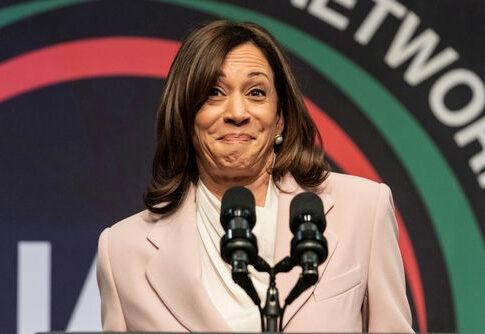Kamala Harris’s memoir reveals her private fear that America wasn’t ready for both a Black woman and a gay man on the same presidential ticket, a confession that upends assumptions about the real forces guiding the Democratic Party’s strategy in 2024.
Inside Harris’s Calculated Choice: Memoir Excerpts Reveal the Real Story
Kamala Harris emerged as the Democratic nominee for president in early 2024 after President Biden suspended his campaign, abruptly thrusting her into a turbulent race. The country watched as Harris’s campaign rapidly assembled a shortlist of potential running mates, with Pete Buttigieg—openly gay and widely viewed as a generational bridge—leading the pack. Yet, in a twist revealed only in her memoir 107 Days, Harris decided against Buttigieg, fearing that the ticket would ask “too much” of American voters already grappling with her own groundbreaking candidacy as a Black woman.
Tim Walz made a fool of himself for months on the national stage only for Kamala to say she wished she could have ran with Mayor Pete, but he was too gay. pic.twitter.com/y5VmTBDj0z
— Jesse Franklin-Murdock (@MurdockJDF) September 18, 2025
Harris’s admission stands in stark contrast to the public narrative of a party always eager to champion diversity. She writes: “We were already asking a lot of America: to accept a woman, a Black woman, a Black woman married to a Jewish man. Part of me wanted to say, screw it, let’s just do it. But knowing what was at stake, it was too big of a risk.” Her words lay bare the inner calculus that dominates presidential campaigns, where representation collides with perceived electability. The Democratic Party’s ongoing struggle to balance diversity and risk tolerance is no longer just speculation—it’s a matter of record.
The Double Bind: Identity Politics and Electoral Strategy
Harris’s choice exposes the “double bind” faced by candidates from multiple underrepresented groups. Buttigieg’s historic 2020 run as the first openly gay major presidential candidate had already tested the waters, but Harris sensed that a ticket with both her and Buttigieg would push the boundaries of voter comfort too far. Party strategists agreed, warning that the combination could alienate swing voters in key battleground states. Instead, Harris pivoted to Tim Walz, Minnesota’s governor, whose regional appeal and conventional profile reduced perceived risk—though not without criticism from progressive activists.
The Democratic Party’s caution echoes previous campaign decisions, including Biden’s selection of Harris as VP in 2020—a move that balanced identity with broad appeal. Yet the 2024 cycle’s heightened polarization forced Harris to weigh not just ideals but survival, leading to a decision that would shape the party’s image and unity for years.
The Fallout: A Party Rethinks Its Values
Publication of Harris’s memoir in September 2025 sparked immediate controversy and soul-searching across the Democratic landscape. Progressive voices condemned the decision as cowardly, arguing that genuine progress requires taking risks, not managing them. LGBTQ+ advocates expressed disappointment but acknowledged the harsh realities exposed by Harris’s candor. Centrists and party strategists countered that electoral victory sometimes demands compromise, especially when the stakes involve control of the White House.
Kamala Harris claims she couldn't pick Pete Buttigieg as her VP because he's gay, so she settled for buffoon Tim Walz.
So to her, being gay is a bigger liability than endorsing taxpayer-funded sex changes for minors?!
This logic is incoherent. Voters made the right choice. pic.twitter.com/FwsBLUvbK7
— Scott Jennings (@ScottJenningsKY) September 18, 2025
Tim Walz’s sudden elevation to national prominence has brought new scrutiny to his record and style. Meanwhile, Buttigieg remains a significant figure in Democratic politics, his exclusion from the ticket now a symbol of both progress achieved and progress deferred. The ripple effects are evident in campaign strategy circles, where Harris’s memoir is studied as both a cautionary tale and a playbook for future candidate selection.
Expert Analysis: Pragmatism Versus Progress
Political analysts see Harris’s decision as emblematic of a pragmatic approach to electoral strategy—balancing the demands of representation with the realities of voter bias. Scholars in political science and identity politics have pointed to the “double bind” phenomenon, where candidates from multiple marginalized groups must navigate not just overt prejudice but subtle, systemic barriers. The debate now centers on whether the party’s caution stifles progress, or whether incrementalism is the only viable path in a divided nation.
Harris’s memoir stands as a rare first-person account of high-level campaign decision-making, lending credibility and depth to the ongoing conversation about identity, risk, and the future of American democracy. The story’s resonance derives not just from what was decided, but from Harris’s willingness to confront uncomfortable truths—about herself, her party, and the country at large.

